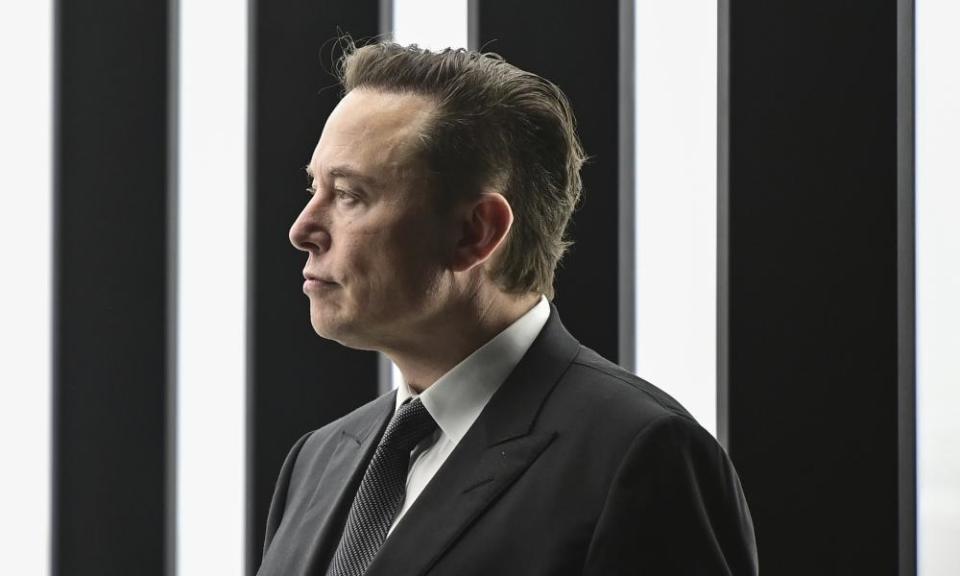Heaven or hellscape: what will Elon Musk’s Twitter look like?

Elon Musk is not buying Twitter to make more money: he’s doing it to help humanity.
In a message to advertisers last week, the world’s richest man said it was important to the future of civilisation to have a “common digital town square”. But bettering the species is going to cost money, given that Musk has paid $44bn for a social media platform to achieve that aim.
The new business will carry $13bn of debt that helped fund the acquisition, and interest payments on it will need to be met – a tricky task given that Twitter generates more controversy than it does cash. In its most recent results, Twitter reported negative free cashflow (spending more cash to run the business than it takes in) of more than $120m.
“He’ll either need to dramatically reduce expenses, or significantly increase revenue, or both,” said Drew Pascarella, a senior lecturer on finance at Cornell University in New York state.
Can Musk grow the revenue and expand the number of users – there are more than 238 million of them – without alienating advertisers or pushing away the new sign-ups that will help make the platform a truly representative town square?
Advertisers will not want to put money behind a fractious, ultra-divisive platform, and would-be Twitter newbies will not want to join it either.
Dear Twitter Advertisers pic.twitter.com/GMwHmInPAS
— Elon Musk (@elonmusk) October 27, 2022
Since he first invested in the company, Musk has sketched out a loose vision for the future of Twitter: block the spambots, protect free speech and build an “everything app”.
The first goal became central to the legal wrangling over the takeover. When the bid was first announced, Musk cited “defeating the spambots” as one of his core aims.
But the presence of fake accounts, largely promoting various flavours of cryptocurrency scam, rapidly became an excuse for abandoning the trade altogether as Musk argued that he had been mislead about their prevalence. He could not, however, provide any evidence to back that up, and since he had signed an agreement to waive his right to investigate the health of the company, the excuse went nowhere.
Protecting free speech has been front and centre since then. “Free speech is the bedrock of a functioning democracy, and Twitter is the digital town square where matters vital to the future of humanity are debated,” Musk said in April. On Thursday, in that attempt to reassure advertisers, he walked back some of the implications of that move. “That said, Twitter obviously cannot become a free-for-all hellscape, where anything can be said with no consequences,” he said in a note posted on the site.
Instead, he suggested that Twitter’s content moderation should be opt-in: “Our platform must be warm and welcoming to all, where you can choose your desired experience according to your preferences, just as you can choose, for example, to see movies or play video games ranging from all ages to mature.”
That vision would see rules against hate speech lifted and users given the option to hide flagged accounts from their timeline.
Musk clarified this further on Friday, saying the company would be forming a “content moderation council” with “widely diverse viewpoints”. Until that council is formed, there will be no account reinstatements for controversial banned figures such as Donald Trump or Katie Hopkins.
He then muddied the waters by later saying: “Anyone suspended for minor & dubious reasons will be freed from Twitter jail.” He also suggested that Twitter could be split into different strands where users gave their posts content ratings and staged online arguments in a specially created space on the platform.
Twitter’s central role in the media landscape could also be at risk, but only if Musk’s changes made it so toxic as to be unusable, according to one media expert.
“Journalists have also invested a lot of time in curating their feeds to bring them a range of high-quality information about politics, but also about any niche, passion or journalistic beat you can think of,” said Nic Newman, a senior research associate at the Reuters Institute for the Study of Journalism. “It is hard to see another network that does that as effectively or as efficiently right now.”
Twitter will be forming a content moderation council with widely diverse viewpoints.
No major content decisions or account reinstatements will happen before that council convenes.— Elon Musk (@elonmusk) October 28, 2022
But, he added, if the platform lost those attributes or became too divisive, it would become less attractive to the media, which gave the platform great influence relative to its small size. And of course “that’s unlikely to be good business for Twitter either”, said Newman.
Turning Twitter into an “everything app” is the least fleshed-out part of Musk’s vision, but one of his longest-held aims. Referring to services like WeChat in China, an “everything app” is what it sounds like: a single application that covers social networking, private messaging, shopping, business messaging, in-person payments and more. Before it turned its focus on the metaverse, the vision was core to much of Facebook’s expansion.
Related: The twisty, drama-filled Elon Musk-Twitter saga: a timeline
Musk has regularly made reference to his first company, the online bank X.com, and suggested he wanted to revive that brand to build his own version of a western everything app. “Buying Twitter is an accelerant to creating X, the everything app,” he said in early October. “Twitter probably accelerates X by three to five years, but I could be wrong.”

 Yahoo Finance
Yahoo Finance 